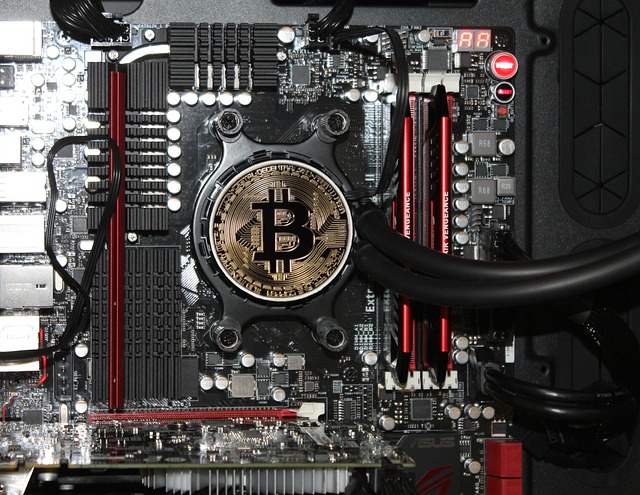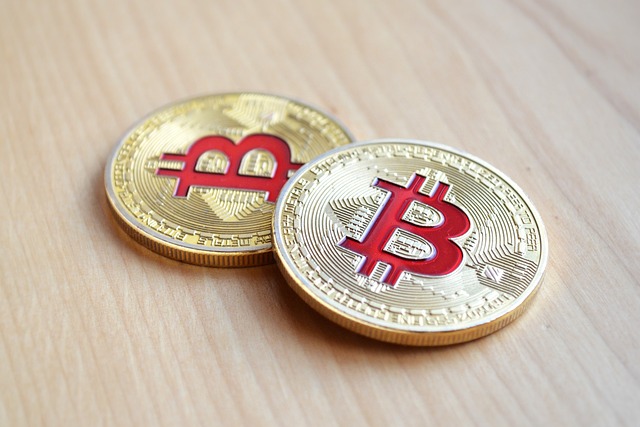Inside the DeFi Ecosystem: A Systematic Overview
Inside the DeFi Ecosystem: A Systematic Overview

What is DeFi and how does it work?
Decentralized Finance, or DeFi for short, is a relatively new concept that aims to revolutionize traditional financial systems.

One of the key features of DeFi is the use of smart contracts. These self-executing contracts are coded with predefined rules and conditions, eliminating the need for intermediaries. Smart contracts help facilitate transactions, lending, and borrowing activities, ensuring that they are executed automatically and without any human intervention. This not only reduces the potential for fraud but also lowers transaction costs and speeds up the entire process. Additionally, DeFi applications often utilize decentralized exchanges (DEXs) to enable the trading of various digital assets, further enhancing the accessibility and efficiency of the financial ecosystem.
The key players in the DeFi ecosystem
DeFi, short for Decentralized Finance, has gained significant attention and popularity in recent years. One of the key players in the DeFi ecosystem is Ethereum, a blockchain platform that allows developers to build and deploy smart contracts.

Another important player in the DeFi space is MakerDAO, a decentralized autonomous organization that facilitates the creation of a stablecoin called Dai. Dai is pegged to the US dollar through a collateralized debt position (CDP) system, which allows users to lock their cryptocurrency assets as collateral to generate Dai. This stablecoin has found widespread use within the DeFi ecosystem, enabling users to participate in lending, borrowing, and other financial activities without relying on traditional banking systems.
These are just two examples of the key players shaping the DeFi landscape. As the industry continues to evolve, we can expect to see new projects emerge and existing players strengthen their positions. Exploring the various DeFi applications and platforms will give us a deeper understanding of the innovative ways in which these players are revolutionizing the financial space.
Exploring the various DeFi applications and platforms
Decentralized Finance (DeFi) has opened up a world of opportunities with its diverse range of applications and platforms. From lending and borrowing to token issuance and decentralized exchanges, there are various DeFi applications that offer new and innovative ways to interact with financial systems.
One popular application in the DeFi space is decentralized lending platforms. These platforms allow individuals to lend and borrow funds without the need for a centralized intermediary. Users can lend their cryptocurrencies and earn interest on their holdings, while borrowers can access funds without going through traditional financial institutions. This decentralized approach not only eliminates the need for approval processes and paperwork but also opens up lending opportunities to individuals who may not have access to traditional banking services. Additionally, these platforms often use smart contracts to automate the lending process, ensuring transparency and security for all parties involved.
Understanding the benefits and risks of participating in DeFi
Participating in DeFi comes with a range of benefits. One of the most prominent advantages is the opportunity to have full control over your financial transactions and assets. Unlike traditional financial systems, DeFi allows for peer-to-peer interactions without the need for intermediaries such as banks. This means that users have the power to manage their funds directly, eliminating the need to rely on third parties. Additionally, DeFi offers greater accessibility to financial services, especially for those who are unbanked or underbanked. With just an internet connection, individuals around the world can access DeFi platforms and engage in various financial activities, such as lending, borrowing, or even trading digital assets.
However, it is essential to be aware of the risks inherent in participating in DeFi. One of the primary concerns is the fact that DeFi is still a relatively new and rapidly evolving field. As a result, there may be vulnerabilities and security risks associated with smart contracts and decentralized applications (DApps) that power the DeFi ecosystem. Hacks and exploits have occurred in the past, leading to significant financial losses for individuals and the broader DeFi community. It is crucial for users to conduct thorough research and due diligence before engaging in any DeFi activities, including reviewing the code and security audits of the DApps they intend to use. Additionally, as with any investment or financial undertaking, there is always the risk of market volatility. Prices of digital assets can fluctuate rapidly, and it is important to be prepared for potential losses.
The role of smart contracts in the DeFi ecosystem
Smart contracts play a crucial role in the DeFi ecosystem by enabling the seamless execution of financial agreements without the need for intermediaries. These self-executing contracts are built on blockchain technology, ensuring transparency, security, and reliability. Through smart contracts, DeFi applications can automatically enforce the terms and conditions of various financial transactions, such as lending, borrowing, trading, and more.
One of the key advantages of smart contracts in DeFi is their ability to eliminate the need for trust between parties. By defining the rules and conditions of a transaction within the contract itself, participants can rely on the code to automatically execute the agreed-upon actions. This removes the need for traditional intermediaries, such as banks or brokers, which reduces costs, increases efficiency, and enables greater accessibility for individuals around the world. Furthermore, smart contracts in DeFi also facilitate programmability, allowing developers to create complex financial instruments and protocols that can revolutionize the way we interact with money.
The importance of decentralized exchanges in DeFi
Decentralized exchanges (DEXs) play a crucial role in the world of decentralized finance (DeFi) by offering a secure and efficient platform for users to trade cryptocurrencies and other digital assets. Unlike centralized exchanges, which rely on intermediaries to facilitate transactions, DEXs operate on open-source protocols and smart contracts, enabling peer-to-peer trading without the need for third-party oversight. This decentralized nature brings numerous advantages, making DEXs an essential component of the DeFi ecosystem.
One significant benefit of decentralized exchanges is the enhanced security they provide. By eliminating the need for a central entity to hold users’ funds, DEXs significantly reduce the risk of hacks and theft. In a DEX, users retain control of their assets throughout the entire trading process, ensuring that they remain secure in their personal wallets. Moreover, due to the use of smart contracts, transactions are executed automatically, eliminating the possibility of human error or fraudulent activity. This combination of user control and automated processes fosters a high level of trust and reliability within the decentralized exchange market.
The potential impact of DeFi on traditional financial systems
Decentralized Finance, or DeFi, has emerged as a disruptive force, challenging the traditional financial systems that have long dictated how we handle money. With its underlying technology based on blockchain and smart contracts, DeFi offers a decentralized alternative to traditional banking and financial services. This poses a potential impact on traditional financial systems as it aims to remove intermediaries, increase transparency, and democratize access to financial services for all.
One of the key potential impacts of DeFi on traditional financial systems is the removal of centralized authorities. In traditional banking, financial institutions act as intermediaries, controlling and managing transactions. With DeFi, smart contracts automate and execute transactions, eliminating the need for intermediaries. This decentralized approach reduces costs, eliminates the risk of human error, and increases efficiency in financial transactions. Additionally, DeFi opens up opportunities for individuals who are unbanked or underbanked, providing financial services and products to those who were previously excluded from the traditional system.
The challenges and regulatory concerns surrounding DeFi
DeFi, with its decentralized nature and lack of intermediaries, presents a range of challenges and regulatory concerns. One of the main challenges is the issue of security. Since DeFi applications are built on blockchain technology, they are vulnerable to smart contract bugs or hacking attempts. The absence of a central authority to oversee and address such issues creates a level of risk for participants in the DeFi ecosystem. Moreover, the lack of standardized regulatory frameworks for DeFi further complicates the security landscape, as it becomes harder to establish a uniform set of guidelines and protocols to ensure the safety of user funds.
Another significant concern surrounding DeFi is the potential for money laundering and illicit activities. The decentralized nature of DeFi platforms makes it challenging to implement robust Know Your Customer (KYC) and Anti-Money Laundering (AML) measures. This creates an environment where individuals can freely participate in DeFi applications without disclosing their identities or the origin of their funds. As a result, regulators are closely monitoring the rapidly evolving DeFi ecosystem to identify potential risks and establish measures to prevent the misuse of these innovative financial tools.
Notable success stories and projects within the DeFi ecosystem
Decentralized Finance (DeFi) has gained immense popularity in recent years, giving rise to numerous success stories and innovative projects within its ecosystem. One such notable project is Aave, a decentralized lending and borrowing platform built on Ethereum. Aave allows users to earn interest on their deposited assets and also borrow funds by collateralizing their assets. With an impressive user interface and a wide range of supported tokens, Aave has emerged as one of the leading DeFi platforms, facilitating billions of dollars worth of transactions.
Another remarkable success story in the DeFi space is Uniswap, a decentralized exchange protocol that enables users to trade tokens directly from their wallets. Uniswap’s unique feature of automated liquidity provision has revolutionized the way token trading occurs in the decentralized realm. Powered by smart contracts, Uniswap allows anyone to become a liquidity provider and earn fees in return. It has gained significant traction and has become one of the most popular decentralized exchanges, boasting high liquidity and an extensive list of supported tokens.
These are just a glimpse of the success stories and projects that have emerged within the DeFi ecosystem. As the space continues to evolve, new projects and innovative solutions will undoubtedly emerge, shaping the future of decentralized finance. Stay tuned to witness the exciting developments and potential disruptions that DeFi has in store for the traditional financial systems.
• Aave: A decentralized lending and borrowing platform on Ethereum
– Users can earn interest on deposited assets and borrow funds by collateralizing assets
– Impressive user interface and wide range of supported tokens
– Facilitates billions of dollars worth of transactions
• Uniswap: A decentralized exchange protocol for trading tokens directly from wallets
– Unique feature of automated liquidity provision revolutionizes token trading in the decentralized realm
– Anyone can become a liquidity provider and earn fees in return
– One of the most popular decentralized exchanges with high liquidity and extensive list of supported tokens
As the DeFi ecosystem continues to evolve, more success stories and innovative projects are expected to emerge. These notable projects have already made significant contributions to reshaping traditional financial systems. Stay tuned for exciting developments that will shape the future of decentralized finance.
Future trends and potential developments in the DeFi space
As the DeFi space continues to gain momentum, several future trends and potential developments are on the horizon. One such trend is the increased integration of real-world assets into the DeFi ecosystem. Currently, most DeFi platforms are predominantly focused on cryptocurrency-related assets. However, there is a growing interest in bridging the gap between traditional finance and DeFi by incorporating real-world assets, such as stocks, bonds, and even real estate, into decentralized platforms. This has the potential to open up new opportunities for investors and further expand the reach of DeFi.
Another potential development in the DeFi space is the emergence of interoperability solutions. Currently, many DeFi projects operate within their own isolated ecosystems, making it challenging for users to seamlessly interact with different platforms. However, interoperability solutions aim to address this issue by enabling cross-chain communication and interoperability between various DeFi platforms. This would allow users to access a wider range of DeFi services and assets, regardless of the underlying blockchain technology. With increased interoperability, the DeFi space could become more accessible and convenient for users, paving the way for further adoption and growth.
What is DeFi and how does it work?
DeFi, short for decentralized finance, is a term used to describe the use of blockchain technology and smart contracts to recreate traditional financial systems in a decentralized manner. It enables individuals to access financial services like lending, borrowing, and trading without the need for intermediaries like banks.
Who are the key players in the DeFi ecosystem?
The DeFi ecosystem comprises various participants, including developers who create the decentralized applications (dApps), users who interact with these dApps, liquidity providers who supply assets for trading, and decentralized exchanges that facilitate transactions.
What are some examples of DeFi applications and platforms?
Some popular DeFi applications and platforms include decentralized lending platforms like Compound and Aave, decentralized exchanges like Uniswap and SushiSwap, and decentralized stablecoins like DAI.
What are the benefits of participating in DeFi?
Participating in DeFi allows individuals to have more control over their finances, access financial services without the need for a third party, earn passive income through lending and liquidity provision, and benefit from transparent and auditable transactions.
Are there any risks associated with DeFi?
Yes, there are risks involved in DeFi, such as smart contract vulnerabilities, liquidity risks, and regulatory uncertainties. It’s important to carefully assess the risks before participating in DeFi and only invest what you can afford to lose.
What role do smart contracts play in the DeFi ecosystem?
Smart contracts are self-executing contracts with the terms of the agreement directly written into code.

How important are decentralized exchanges in the DeFi ecosystem?
Decentralized exchanges (DEXs) are a vital component of DeFi as they allow users to trade cryptocurrencies directly from their wallets without the need for a centralized exchange. DEXs provide users with more control, privacy, and security.
What impact can DeFi have on traditional financial systems?
DeFi has the potential to disrupt traditional financial systems by providing financial services in a more accessible, transparent, and inclusive manner. It can reduce the reliance on traditional intermediaries and empower individuals globally.
What challenges and regulatory concerns are there surrounding DeFi?
One of the challenges of DeFi is the lack of regulatory clarity, which can lead to potential risks for participants. Regulatory concerns include money laundering, fraud, and investor protection. Governments are still grappling with how to regulate this emerging industry.
Can you provide some notable success stories and projects within the DeFi ecosystem?
Sure! Some notable success stories in DeFi include the rise of lending protocols like MakerDAO, which created the first decentralized stablecoin DAI, and the explosive growth of decentralized exchanges like Uniswap, which reached billions of dollars in trading volume.
What future trends and developments can we expect in the DeFi space?
In the future, we can expect to see even more innovation in DeFi, such as the integration of real-world assets into decentralized finance, the rise of cross-chain interoperability, and the development of more user-friendly interfaces to attract mainstream adoption.
Todays Featured Product:
Buy, exchange and grow your crypto securely with a Ledger hardware wallet, combined with the Ledger Live app. It’s never been easier to keep your crypto safe and accessible. Buy direct from Ledger.com and get todays Special Offers Here.




